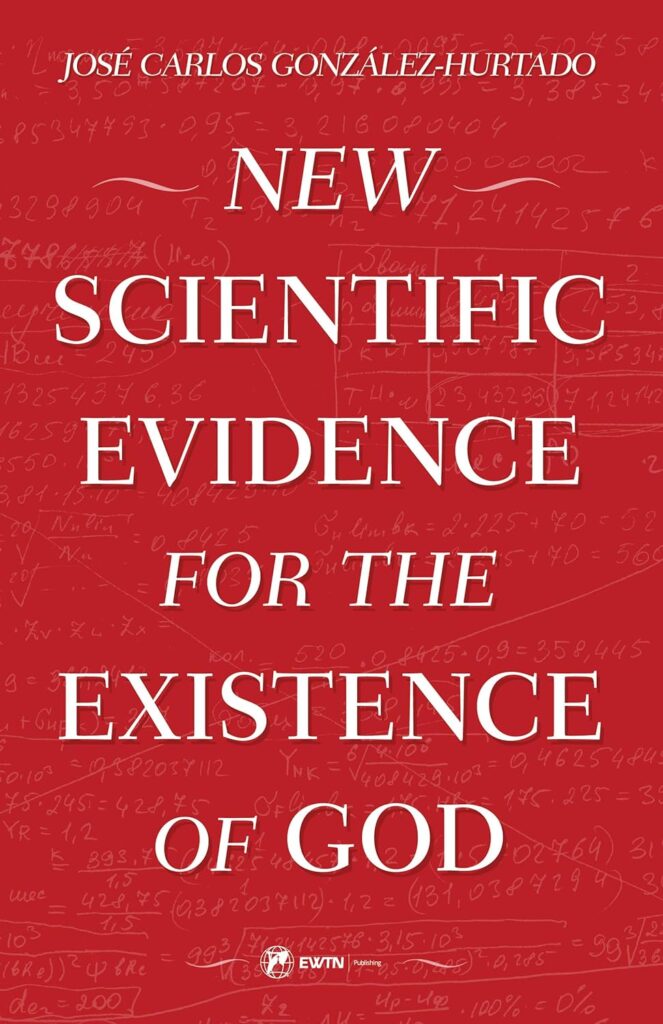New Scientific Evidence for the Existence of God, by José Carlos González-Hurtado (EWTN Publishing; 336 pp., $18.95). The conflict between science and religion has been exaggerated, at the very least. One can even make the case that the Scientific Revolution was the fruit of Christendom rather than a rebellion against it. Biblical theism asserts an order vouchsafed by a supreme lawgiver, while science, beginning with Greek philosophy, is the search for the great logos underlying life and the cosmos. It is faith in a supernatural order that first led humanity to discover the truths of physics, biology, and chemistry.
A great many secularists now attempt to attack science’s metaphysical and theological roots. In this book, González-Hurtado rebuts them not only with science but history, including the record of scientists motivated by explicit, intense religious sentiments. In addition to devout scientists before the 20th-century such as Newton, Copernicus, and Mendel, the list of modern religious scientists is striking. The logician Kurt Gödel not only transformed mathematics with his incompleteness theorem, he also reworked Saint Anselm’s ontological proof of God’s existence. Goddard Institute for Space Studies Director Robert Jastrow argued that theological insights have a place in science. Harvard astronomer Owen Gingerich saw no contradiction between being president of the International Astronomical Union and professing Christian faith. Such figures demolish the narrative that religion only appeals to the ignorant.
Especially ironic is the idea that the Big Bang theory is atheistic, given that it was formulated by a Catholic priest and at first resisted by atheists. Even today, some deem it too reminiscent of the opening lines of Genesis, as well as of the reflections concerning the concept of time in Augustine’s Confessions.
This book would be stronger if it were slightly less polemical, and also if the author were less zealous while unconvincingly accusing atheistic Darwinians of racism. Nonetheless, González-Hurtado is right to note that scientific theories about evolution should be distinguished from what we might call the ideology of evolutionism. Moreover, his attack upon the scientific pretensions of Marxism is impeccable and timely. Mainstream media would just as soon see us forget that not long ago it was the adherents of the brutal, totalitarian Soviet regime who were telling us to “trust the science.”
(Jerry Salyer)
The Paleolibertarian Guide to Deep Tech, Deep Pharma & the Aberrant Economy, by Ilana Mercer (Toad Tomes Publishers; 407 pp., $19.99). Libertarians understand, rightly, that economic freedom goes along with individual liberty and prosperity. But American libertarians have become advocates of a solipsistic individual will and license. Paleolibertarians like Ilana Mercer, however, understand that man lives in a community, the virtues of which are necessary for capitalism, and which protects him from intrusive government.
In this incisive chapter-and-verse exposé of the current American regime, Mercer argues that the state, which now represents the merger of government and large corporations, is presiding over the destruction of American civil society.
Mercer’s description of the American economic and social condition will not find disagreement from any Chronicles reader. “The business of life,” she writes, “one’s livelihood, and the locality in which one lives and loves—these are the proper repositories for conservative loyalties.”
Living standards of the middle and working classes are falling. One might think this would interest public leaders. Instead they are busy promoting ethnic chaos, genocide, and sodomy here and abroad. The COVID lockdown killed 3.3 million small businesses; the homeless now include more and more families; BigTech claims to need to import foreign talent while firing Americans (good “legal immigration,” according to Republican boilerplate). Differences in wealth distribution are greater than ever.
Our leaders don’t see any problems with this. They don’t notice catastrophic debt and the overextended, wasteful, and incompetent military as problems, despite their contribution to the “aberrant” economy.
Mercer’s treatment of health tyranny, immigration, and outsourcing is informative and hard-hitting. “The free flow of goods across borders is not to be confused with the free flow of people across borders,” she writes. “The very stuff of life has been contracted out. Not mere jobs, but careers; not just some products, but entire production lines; not one or two manufacturing plants, but the means of production.”
The author advocates a preference for good old common sense. Common sense was long the undergirding of Anglo-American law and our way of life. Why have so many abandoned it for the authority of phony “expertise”?
Mercer is always a fun read, not least because of her creative labeling: castrati Republicans, Washington wokerati, FixNews, ConOink, Learjet liberals, “bafflegat” for bureaucratic and progressive discourse—and “Walmart with Missiles” as an apt moniker for modern America.
(Clyde N. Wilson)



Leave a Reply